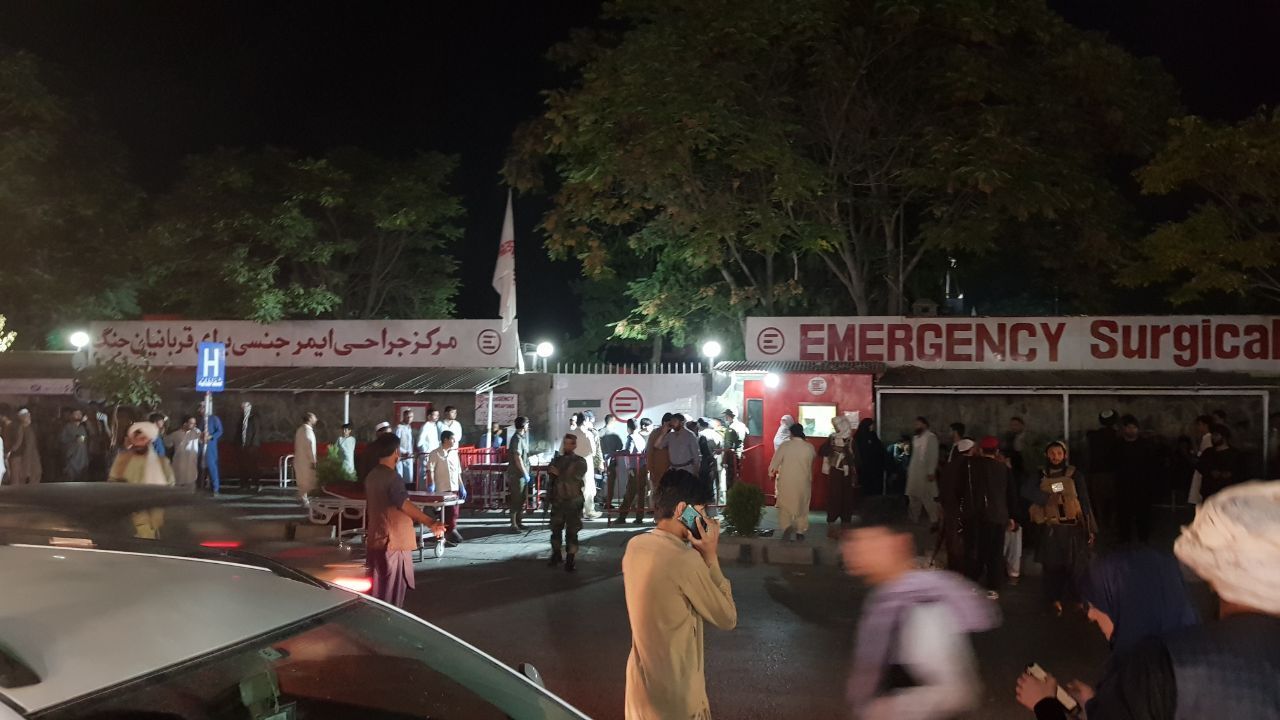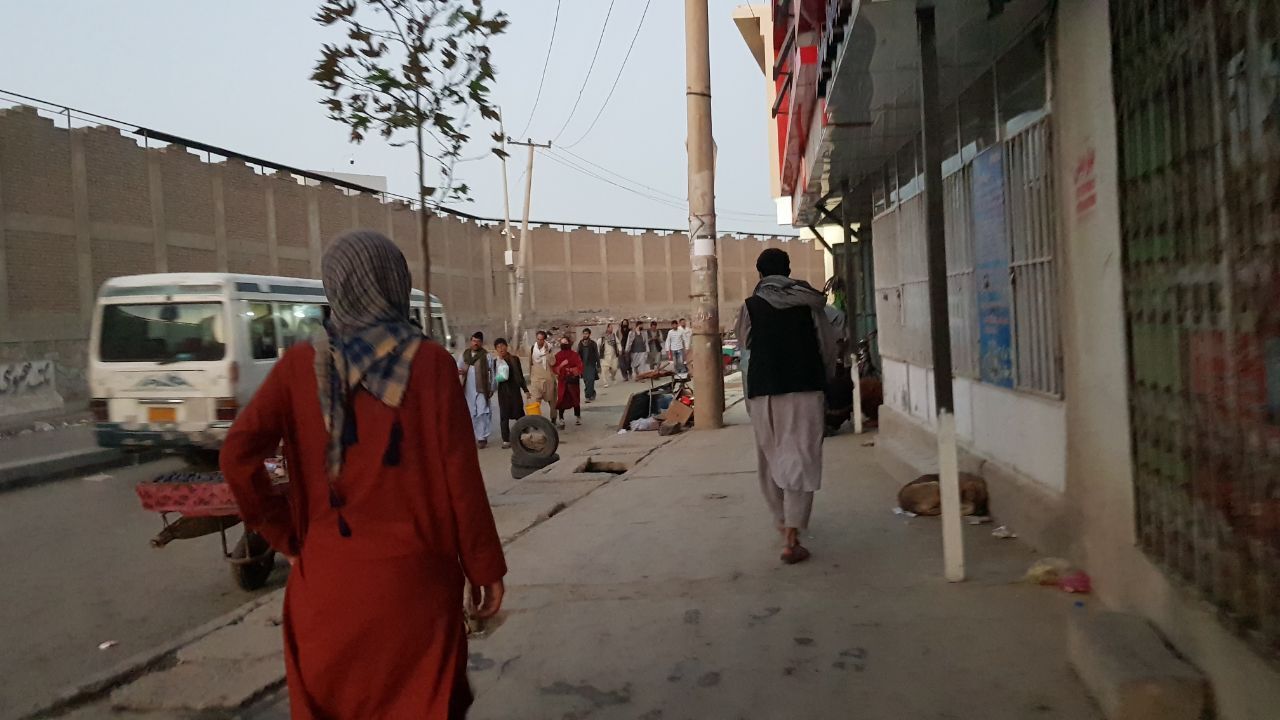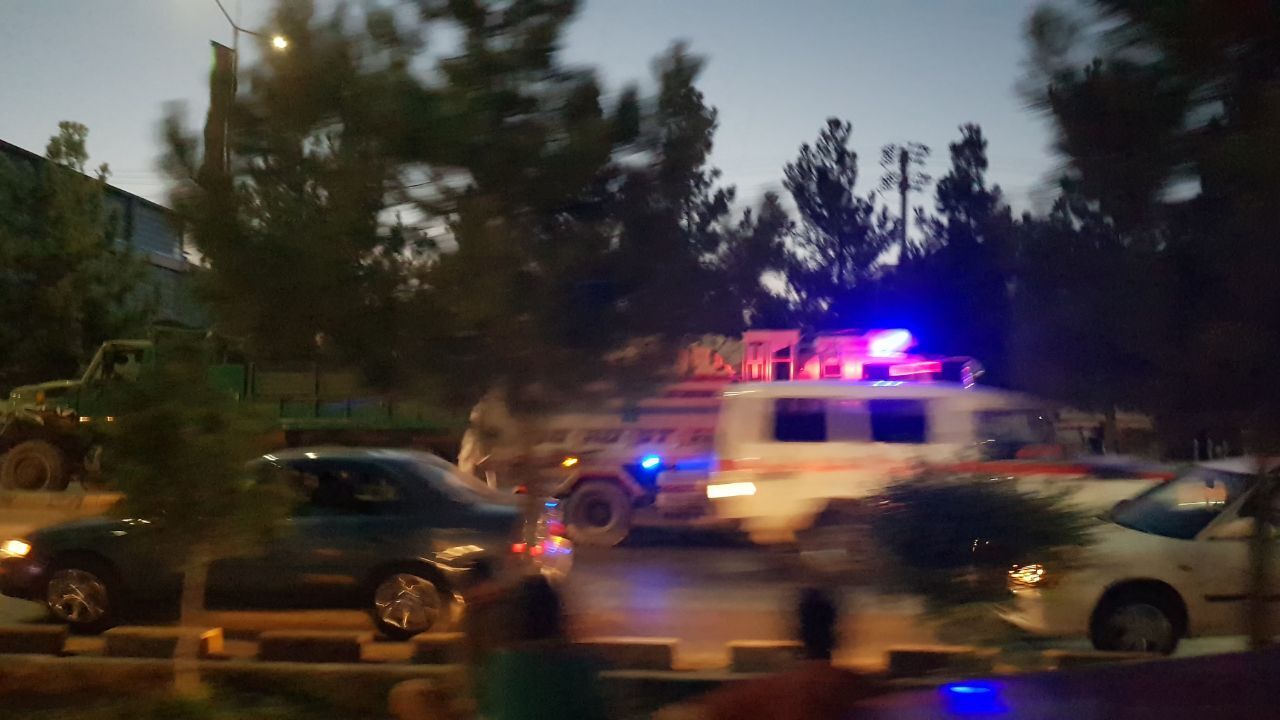At least 13 U.S. troops and dozens of Afghan citizens were killed in two suicide bombings outside the Hamid Karzai International Airport in Kabul on Thursday, U.S. and Afghan officials said.
What we know: The "complex attack" that struck in the sunset of the U.S.' longest war involved an explosion at the Abbey Gate entrance to the airport, a second explosion near the Baron Hotel, and gunfire from ISIS fighters, Gen. Kenneth McKenzie told reporters. President Biden blamed ISIS-K for the "vicious attack," and vowed to retaliate.
- Eighteen U.S. troops were injured. Those killed included 11 U.S. Marines and a Navy medic. U.S. Central Command announced Thursday afternoon that a 13th service member died from wounds suffered from the explosion at Abbey Gate.
- AP, citing an Afghan official, reported that at least 60 Afghans were killed. Some of the more than 140 injured Afghans were being treated inside the airport, while many others were transported to hospitals in Kabul, per AP.
- "The threat from ISIS is extremely real ... we believe it is their desire to continue those attacks and we believe those attacks will continue," McKenzie said, adding that preventing attacks will require cooperation with the Taliban, which is controlling access to the area around the airport.
Biden, speaking later on Thursday, said he has directed the Pentagon to develop plans to strike the "assets, leadership and facilities" of ISIS-K, an ISIS affiliate in Afghanistan.
- "We will not forgive, we will not forget, we will hunt you down and make you pay," he said.
- "We will respond with force and precision," he added. "We will not be deterred by terrorists."
Biden called the American service members who lost their lives heroes.
- "They're the spine of America. The best the country has to offer," he said.
- He defended his decision to withdraw troops by Aug. 31: "It was time to end a 20-year war."

Driving the news: McKenzie said Thursday's attack occurred at a gate where soldiers check people before they enter the airfield.
- "We have to ensure they're not carrying a bomb," the general said. "That requires physical screening. ... You ultimately have to get very close to that person."
- "While the air base itself is surrounded with [blast] walls," McKenzie continued, "there's no substitute for ... a young United States man or woman standing out there, conducting a search."
- "This is close-up work. The breath of the person you are searching is upon you. While we have overwatch in place, we still have to touch the clothes of the person who is coming in," he added.
McKenzie also said the evacuation continues and 5,000 people are on the ramp for departure. He added that there are "probably a little more than 1,000 American citizens left in Afghanistan," while 500 were evacuated in the last 24 hours.
- The State Department is attempting to contact those Americans and determine whether they want to leave, McKenzie said.
- It remains unclear whether and how civilians will be able to enter the airport after Thursday's attack. Americans have been urged to stay away.
- White House Press Secretary Jen Psaki said there were ongoing operations to get Americans and Afghan allies to the airport but offered no details.

The big picture: The explosions followed warnings from the U.S. and allies about a potential terror attack near the airport, where thousands of Afghans have gathered in hopes of fleeing the country.
- The State Department on Wednesday night urged Americans not to travel to the airport and to leave immediately if they were gathered near the Abbey Gate, East Gate or North Gate. The department reiterated that warning after Thursday's explosions.
- The U.K. and Australia gave similar warnings. James Heappey, the British armed forces minister, told the BBC that the threat of a suicide attack by ISIS forces was "credible, imminent and lethal."
- The White House has stressed for several days that the possibility of an attack from ISIS-K was one factor pushing them to attempt to complete the evacuation operation by Aug. 31.
The Taliban condemned the attack and claimed it took place in an area where the U.S. was handling security.
- Between the lines: The U.S. has security control of the airport itself but the Taliban is in control beyond the perimeter.
Several NATO allies have ended their evacuation operations due to the terror threat and the need to prioritize the evacuation of U.S. troops over the coming days.
- Norway's foreign minister has said that the country will no longer be able to evacuate any civilians because "the doors at the airport are now closed and it is no longer possible to get people in."
- McKenzie noted that 104,000 people have been evacuated since the operation began.

Go deeper:
- Biden promises retaliation for attacks in Kabul
- U.S. vows to continue airlift operation despite deadly bombings
- U.S. allies scramble to leave Afghanistan
- House Intel committee to hold classified Afghanistan briefing in September
- State Dept. tells Hill staff to stop directing people to Kabul airport following blast
This is a developing story. Please check back for updates.







